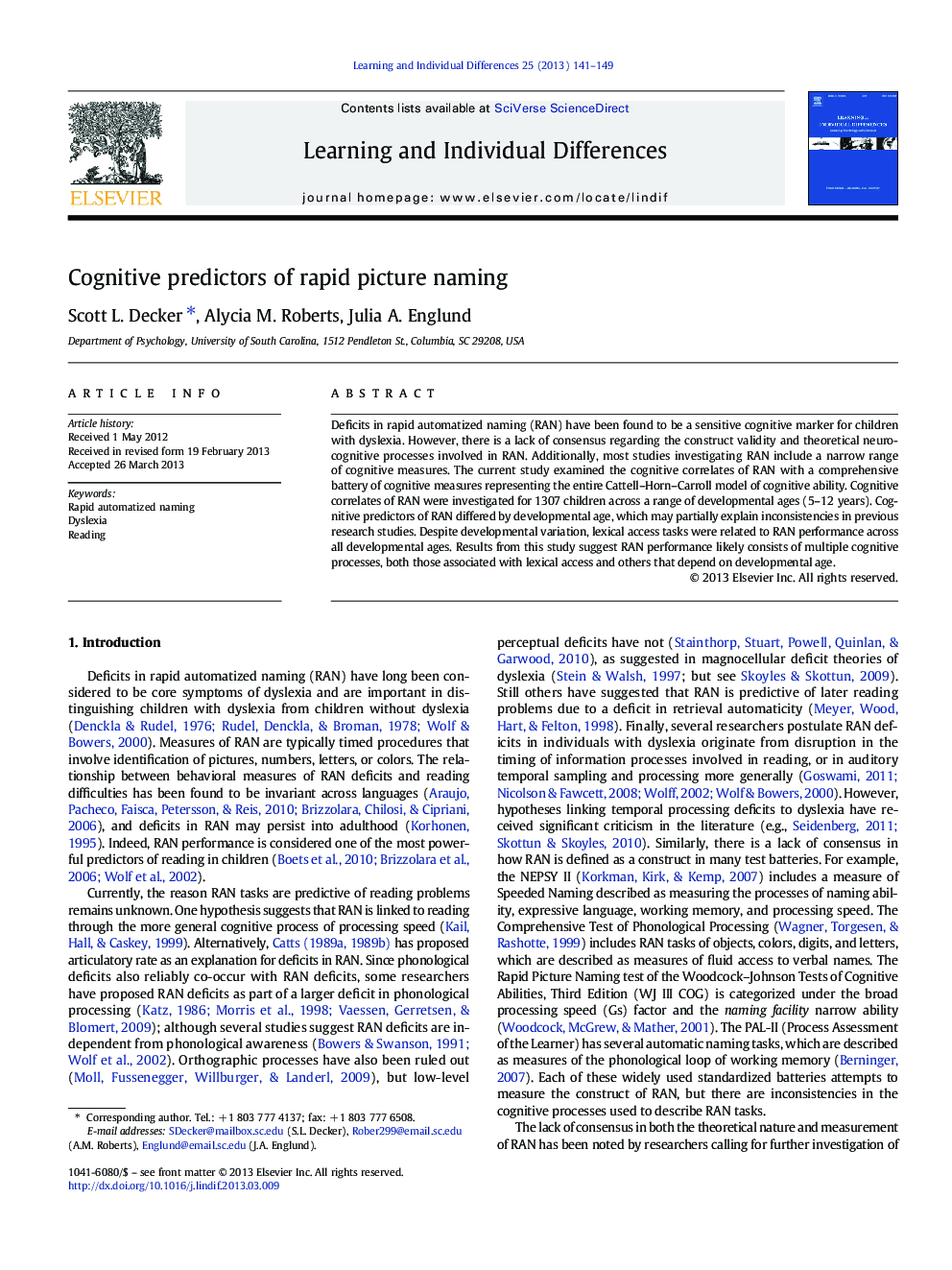| Article ID | Journal | Published Year | Pages | File Type |
|---|---|---|---|---|
| 365104 | Learning and Individual Differences | 2013 | 9 Pages |
•We examine cognitive predictors of rapid automatized naming.•We examine differential patterns of cognitive predictors across early development.•Multiple cognitive processes predict rapid automatized naming performance.•Cognitive predictors of rapid naming vary across an early developmental age range.
Deficits in rapid automatized naming (RAN) have been found to be a sensitive cognitive marker for children with dyslexia. However, there is a lack of consensus regarding the construct validity and theoretical neuro-cognitive processes involved in RAN. Additionally, most studies investigating RAN include a narrow range of cognitive measures. The current study examined the cognitive correlates of RAN with a comprehensive battery of cognitive measures representing the entire Cattell–Horn–Carroll model of cognitive ability. Cognitive correlates of RAN were investigated for 1307 children across a range of developmental ages (5–12 years). Cognitive predictors of RAN differed by developmental age, which may partially explain inconsistencies in previous research studies. Despite developmental variation, lexical access tasks were related to RAN performance across all developmental ages. Results from this study suggest RAN performance likely consists of multiple cognitive processes, both those associated with lexical access and others that depend on developmental age.
